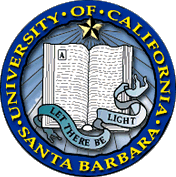Family Friendly Resources
Frequently Asked Questions: Family Friendly Policies, Senate Faculty - Extensions of the Tenure Clock
"The clock" is short-hand terminology for the limitation on the service in specific titles as described in the Academic Personnel Manual (APM) section 133. The period of service as an Assistant Professor or Lecturer with Potential Security of Employment is limited to 8 years inclusive of service on any UC campus in the specified qualifying titles.
What is "time off the clock" or "an extension of the clock"?
These two terms are used interchangeably, but "extension of the clock" might be the more appropriate description of what occurs. An extension of the clock, as described in APM 133-17 h. may be granted for personal reasons "including childbearing, childrearing, serious health condition, disability, bereavement, or significant circumstance or event that disrupts a faculty member's ability to pursue his or her duties." The extension of the clock provides a possibility of additional service in the title beyond the 8- year limit.
Can I request an extension of the clock without taking a leave?
There is no requirement that the faculty member be on leave in order to have an extension of the clock. In cases of personal illness or childbearing, a leave may also occur. Extensions based on childrearing may be in conjunction with a period of ASMD. Extensions based on disruptive significant circumstances or events often to do involve a leave.
Are extensions always done in full year increments?
Extensions are often requested and granted in full-year increments but it is not automatic nor a requirement if a particular situation justifies an extension of a different increment of time.
APM limits the number of clock extensions to two years. However, please see the question below regarding COVID-19 related extensions for further details. Requests for clock extensions should be made as soon as practicable, and cannot be made after the tenure evaluation process has been initiated.
Does my eligibility for advancement change if I ask for an extension of the clock?
No, eligibility for advancement does not change. However, faculty may request a deferral of the next review based on the extension of the clock if they so wish.
Is there any disadvantage to asking for an extension?
No. The extension is intended to provide more options to the faculty member. The faculty member may choose to defer a review, including the tenure review, by a year based on the time off the clock, or may choose to continue along the prior trajectory. The decision on how best to move forward will be an individual decision for each faculty member based on their own situation.
How is the time off the clock be evaluated in a merit or promotion case?
Faculty may not be disadvantaged in the review process because they have requested an extension to the clock. The file is to be evaluated without prejudice as if the work were done in the standard period of service. Activity that takes place during the time off the clock is still counted and evaluated, but the faculty member is not disadvantaged for any reduction in activity during the period.
Is there anything special about the COVID-19 related extension of the clock requests?
COVID-19 related extension requests fall within policy as a "significant circumstance or event that disrupts a faculty member's ability to pursue his or her duties".
- Requests for a third year of extension require approval at Office of the President (OP). Because of the COVID-19 situation, OP has agreed to routinely approve any third-year requests that are submitted when at least one of the requests is COVID-19 related. This means faculty may ask for a COVID-19 related extension without having to worry about using up one of their two opportunities. Faculty do not have to do anything different if this, or a future request is the third; Academic Personnel tracks the time of and will secure the appropriate approvals from OP as needed.
- The majority of requests for extension of the clock are based on child care responsibilities and are for a one- year period of time. COVID-19 related requests do not have to be for a full year, but may be for one or two quarters if the faculty member feels that is appropriate. A single quarter off will not change eligibility or the time-frame for mandatory submission of the tenure case. However, a faculty member might want to request the quarter so that the time period is formally recognized as one of reduced activity. An extension of two or three quarters will move the 8-year limit date out by one year. It is possible that extensions of more than one year may be appropriate in certain situations, although we all hope that does not become the case.
- Requests for time-off the clock do not have to provide detailed accounts of the delays or impacts of COVID-19. The request may simply state that work was interrupted for the period of XX through YY due to the COVID-19 remote work environment and/or research shut-downs, as appropriate to each situation.
How do I ask for an extension of the clock?
If the request for extension of the clock is being requested in conjunction with a leave of absence or ASMD (for example, in the case of childbearing or childrearing) the request for the extension of the clock may be included in the leave request submitted via AP Folio. If the request is not associated with a leave, the request must be submitted in writing (memo or email) to the department chair. Once the chair has reviewed and endorsed, they will forward the request via the Dean to the Associate Vice Chancellor for Academic Personnel for final approval. The request must state the reason for the request and time frame of the extension of/time off the clock.
